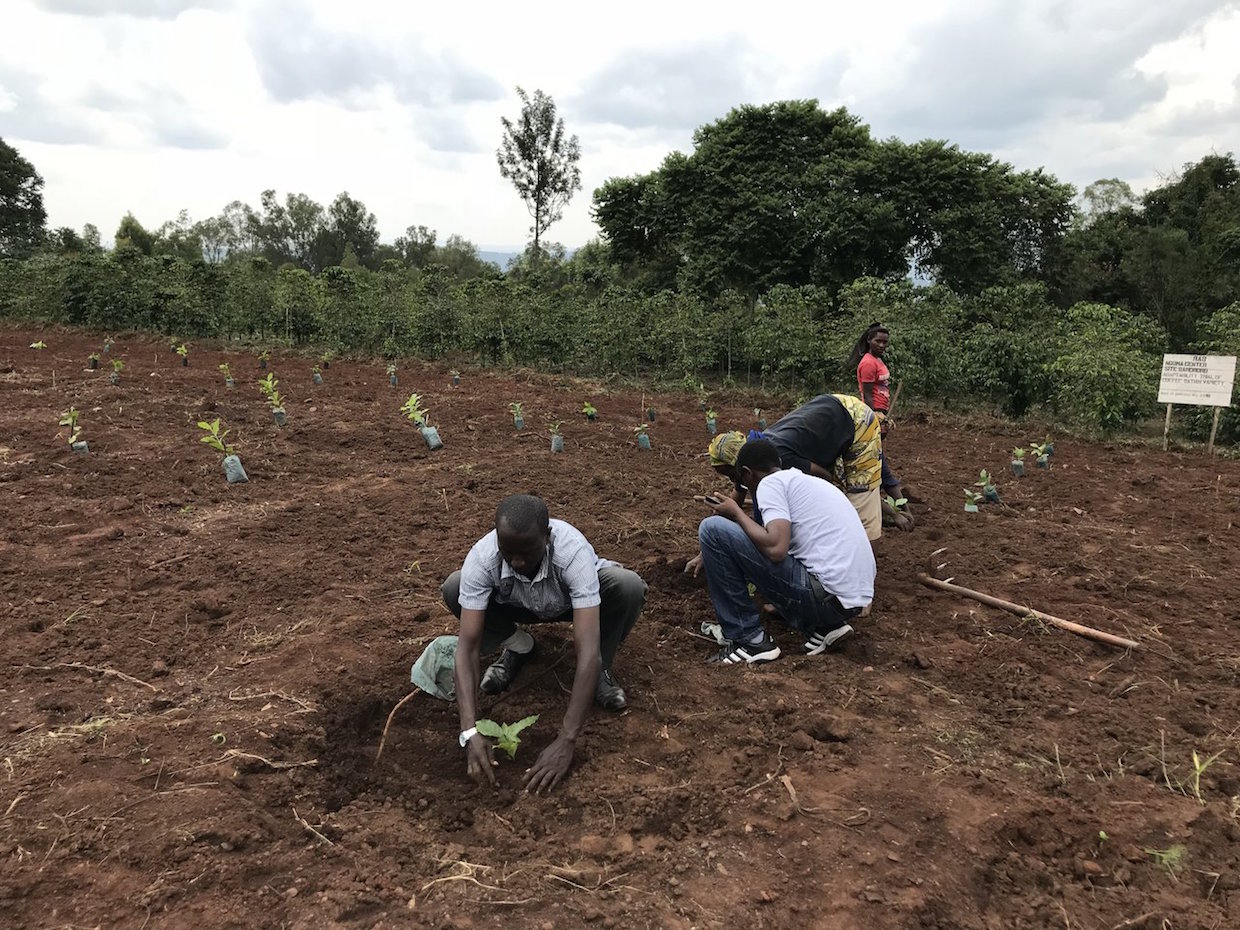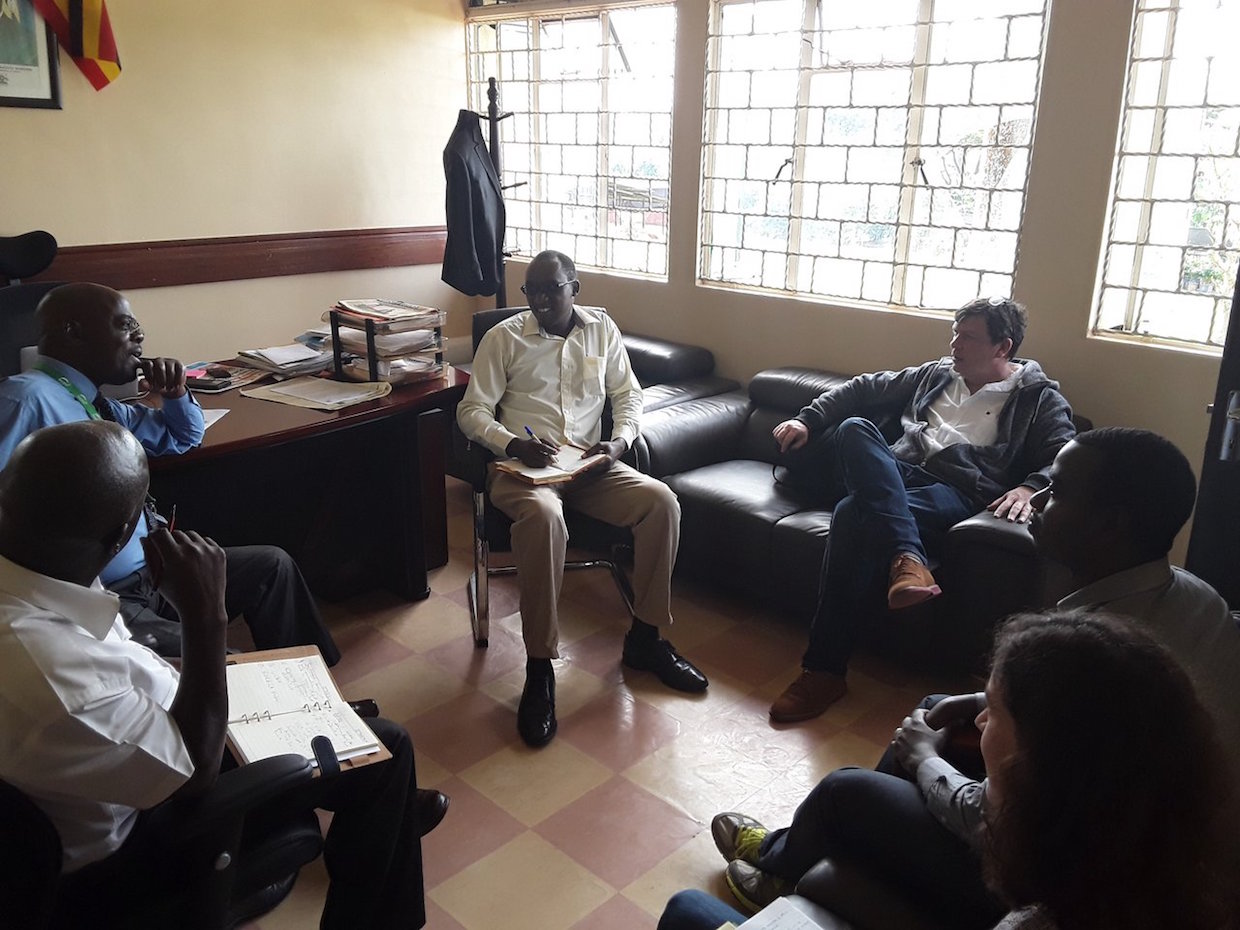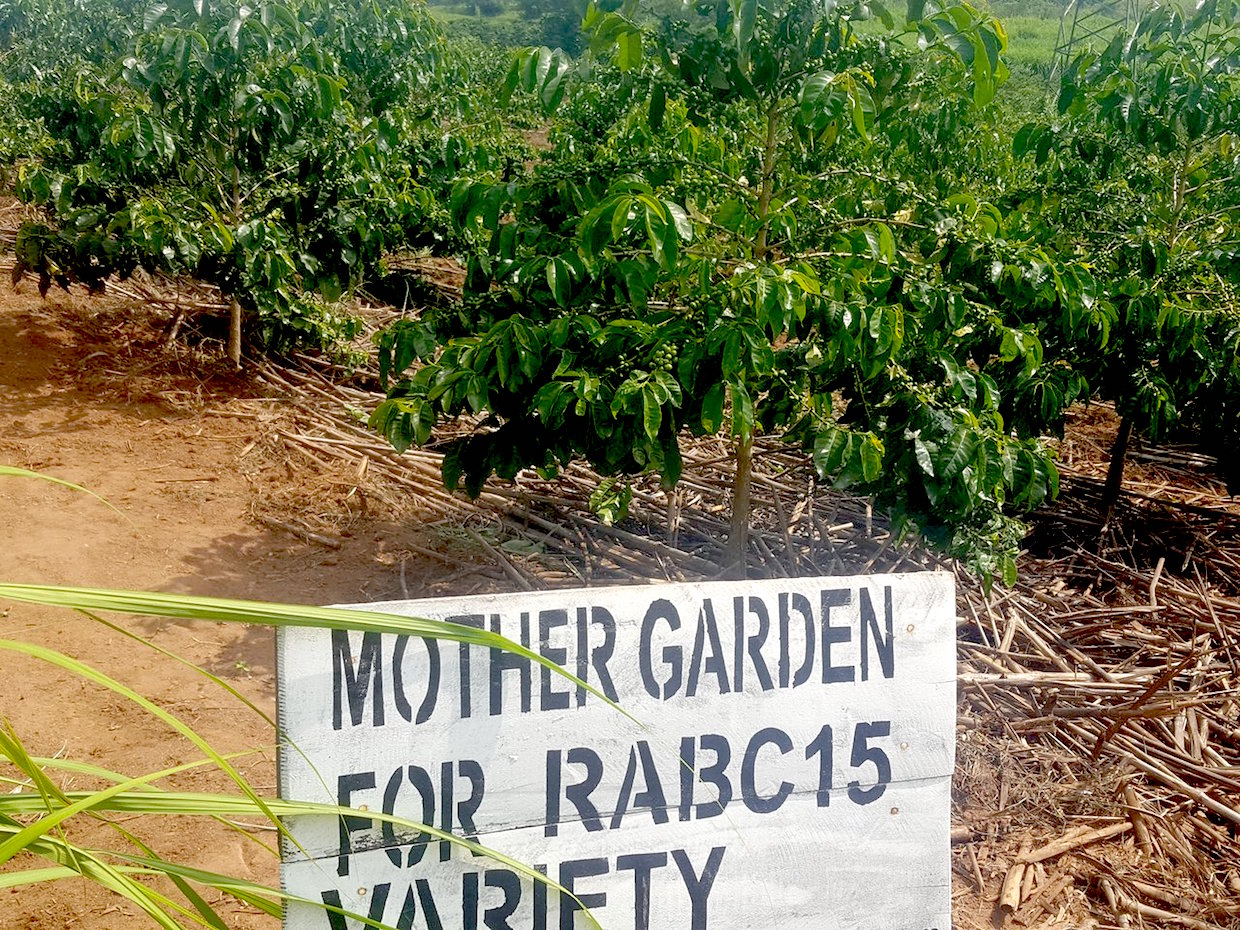
F1 hybrid crosses created in Central America are being sent to Rwanda to test their performance through local adaptation trials. World Coffee Research photo.
The nonprofit World Coffee Research (WCR) and the Rwanda Agriculture Board (RAB) have launched a Rwandan breeding hub, designed to benefit coffee producers throughout Africa in variety selection and access.
The breeding hub builds upon the success of a Central American breeding hub led by WCR, and it will further the reach of the group’s efforts in developing and identifying new coffee plant varieties and cultivars to meet the local and regional needs of farmers, while increasing quality, climate- and disease-resistance and volumes.
Additionally, the hubs are designed to provide centralized places for breeders and other interested parties throughout the respective regions to meet, collaborate and access information and breeding materials, WCR said in an announcement of the opening.

Job Chemutai (center), a breeder from Uganda’s National Coffee Research Institute (NACORI), is eager to use the new breeding hub in Rwanda to identify varieties that will combat the trend of low yields. Also in this picture, from left: Dr. Pascal Musoli (Breeder), Dr William Wagoire (Director, NACORI), and Christophe Montagnon, Pascal Kalisa, and Danielle Kneuppel (World Coffee Research). World Coffee Research photo.
“In Rwanda, like many other coffee-growing countries in Africa, farmers do not have many choices about which varieties are available to them as far as high-yielding potential, good-quality multiple stress resistance, and climate-change resilience are concerned,” Simon Martin, RAB breeder and project leader, said. Martin noted that export targets in Rwanda and in other African nations have fallen short of projections in recent years due to a combination of factors.
WCR says the Rwanda hub will include the organization’s “Core Collection” of 100 genetically diverse coffee varieties that will serve as a breeding pool for new F1 hybrids.
In basic terms, an F1 hybrid is the first-generation offspring of two different parental types. F1 hybrids have already proven successful in the field in Central America, with one called Centroamericano placing second at the most recent Cup of Excellence competition in Nicaragua.
The goal of the F1 hybrid development is to match ideal resiliency characteristics and output characteristics with high quality. The Rwandan hub will include 46 F1s already developed in Central America, according to WCR.
“The hub is expected to generate the next generation of coffee varieties that will be adapted to various growing conditions in Africa and sustain the industry’s genetic and breeding pools,” RAB’s Martin said. “The creation of new, highly adaptable varieties, coupled with a sustainable and effective seed production and distribution systems, is expected to improve coffee productivity and quality gains, not only in Rwanda’s coffee industry, but also in Africa.”
(Editor’s note: A previous version of this post incorrectly stated that WCR developed the F1 hybrid Centroamericano. According to WCR, the hybrid was developed by CIRAD-CATIE-ICAFE-IHCAFE-
Nick Brown
Nick Brown is the editor of Daily Coffee News by Roast Magazine.







Comment